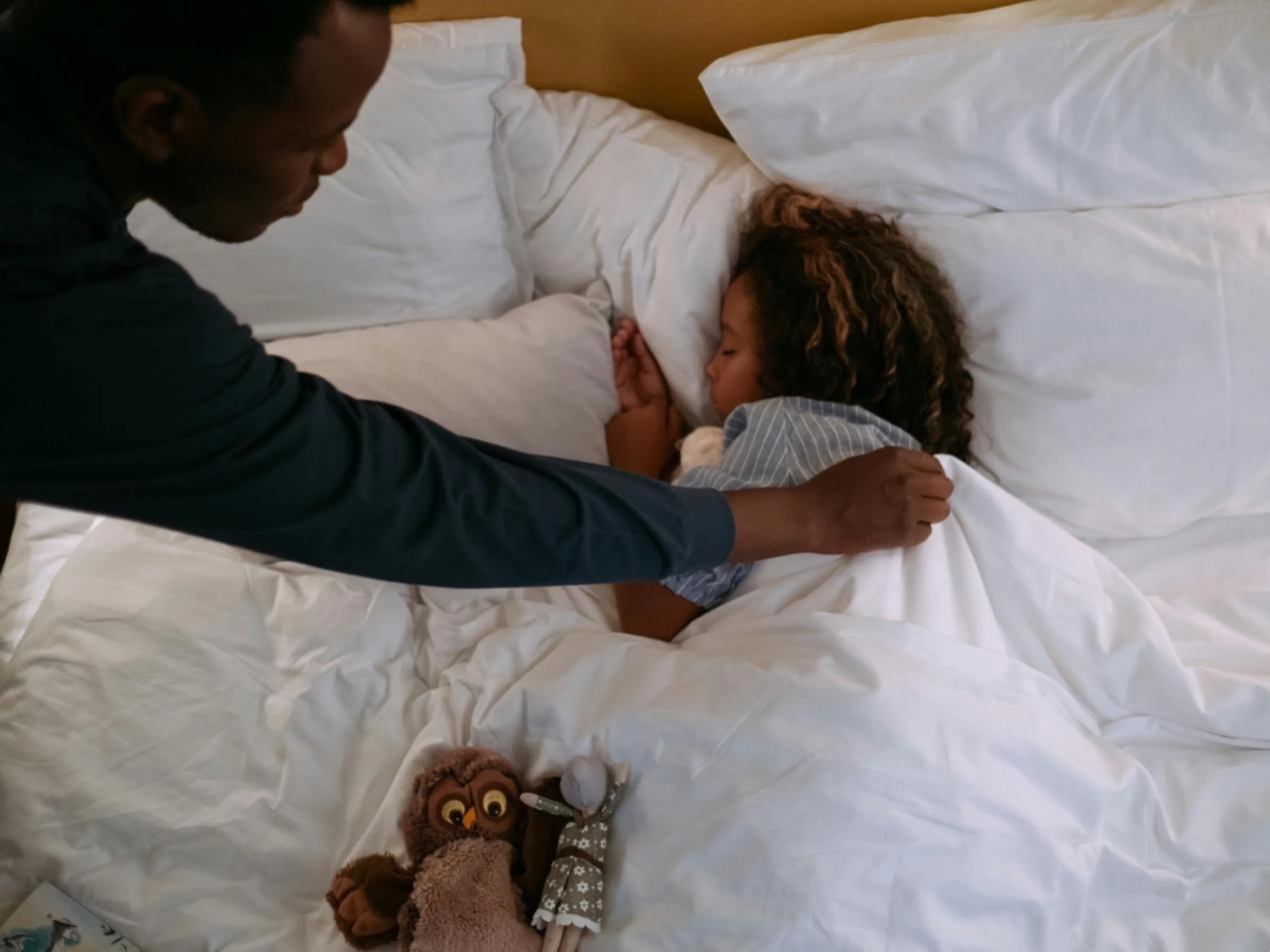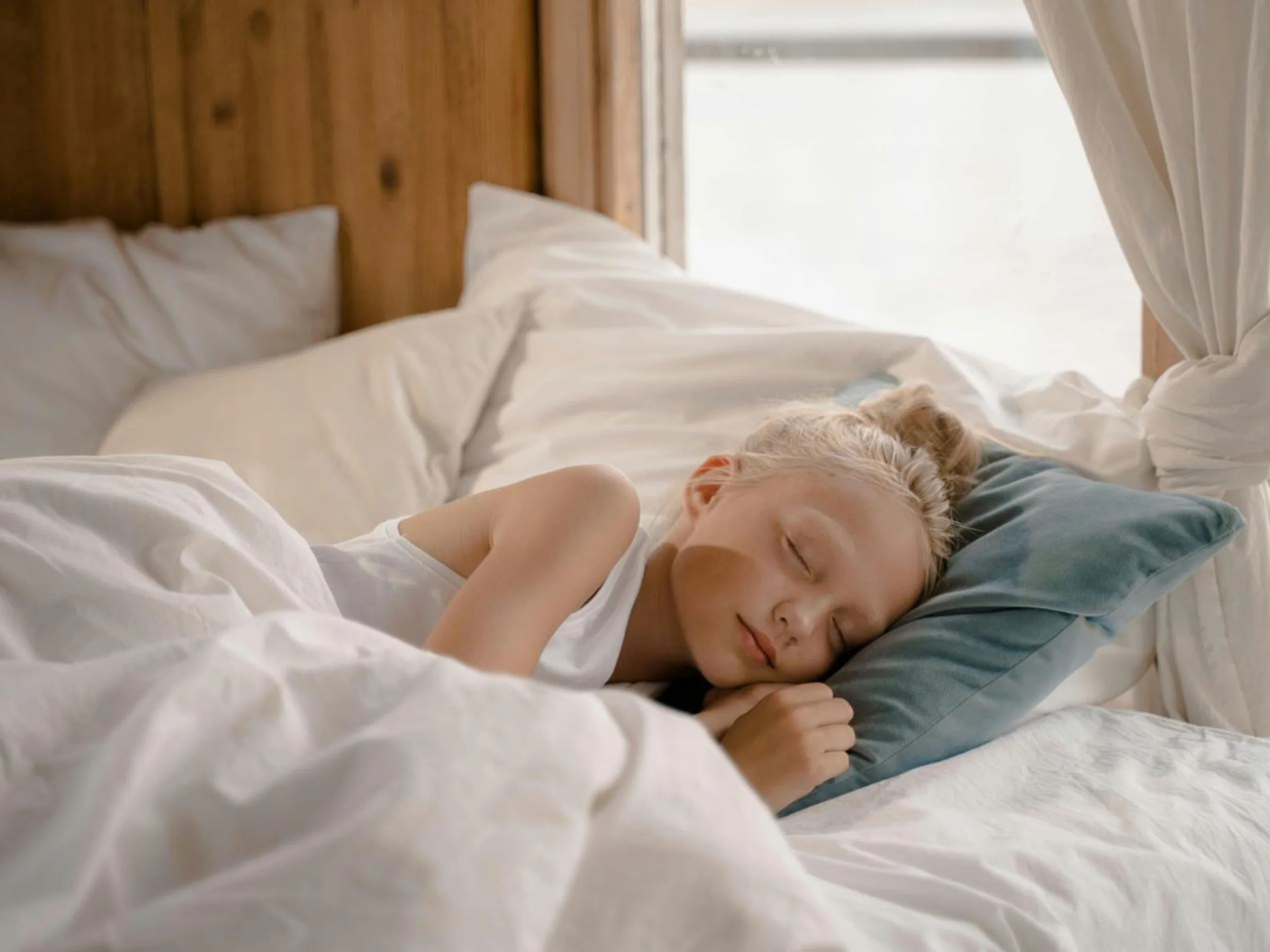Is your child snoring at night? Learn the possible causes, when it’s normal, and when snoring might signal a more serious health issue.
Anyone who has been kept awake by a partner, parent, or other family member snoring will know the impact it can have on sleep. My father is a long-time snorer, and since my parents’ bedroom was close to mine in my childhood home, my Mum and I suffered hugely from endless broken sleep. Long before sleep experts coined the phrase “Sleep Divorce” my Mum implemented this to save her sanity and sleep, by choosing to sleep separately. See our blog on Sleep Divorce if you would like to know more about this
My husband was diagnosed with sleep apnea about seven years ago, and I will be forever grateful to the doctor who did so. Not only was it vital for his health, but for the sake of both of our sleep, too. We were able to maintain our sleeping partnership in a way that worked for us both.
Sadly, it is a common complaint and can be annoying for the partner or family that shares the home. But how about snoring in children? Is it ok when children struggle with snoring too?
Research from the National Sleep Foundation highlighted that many children do snore. However, regularly, it’s only 10% who do, which, when compared to adults, who snore between 30-40% nightly, might seem low and not concerning.
Snoring occurs when air movement through the nose and mouth is restricted during sleep. For adults, this can be due to the narrowing of the airway, often caused by awkward sleeping positions or issues with the soft tissue in the throat. However, this usually doesn’t happen in children, so if a child is snoring, it could indicate another underlying issue.

There are several reasons why children may be snoring:
- Allergies
- A cold or some other respiratory infection
- A small jaw or a small airway
- Obesity
- Enlarged tonsils and adenoids
- Sleep apnea
While some causes of snoring are minor and may resolve on their own, persistent snoring can indicate a more serious condition, such as sleep apnea.
What is sleep apnea?
It is believed that up to 5% of children suffer from either sleep apnea or upper airway resistance syndrome, which is a potentially more serious condition.
Sleep apnea is characterized by repeated interruptions in breathing during sleep, which can lead to various health issues if left untreated.
If snoring is consistent, it’s advisable to consult a healthcare professional for further evaluation.
In children, sleep apnea occurs when the muscles relax excessively during sleep, causing the airway to become obstructed and preventing proper breathing.
This can create pauses in breathing that last from a few seconds to several minutes. The brain detects this lack of adequate breathing and signals the body to react, often causing the child to gasp or snort before resuming regular breathing.
These episodes may frequently coincide with waking up.
The Impact of Snoring and Sleep Apnea on Children’s Health
Snoring can be more than a harmless habit, especially if it disrupts a child’s sleep. Frequent nighttime wake-ups can significantly impact the quality of sleep, leading to irritability, difficulty concentrating, and even learning difficulties. According to the American College of Chest Physicians, children who snore loudly are twice as likely to experience learning difficulties. When overtired, children often struggle to concentrate and may become hyperactive.
The good news is that sleep apnea can often be treated. In many cases, removing the tonsils or adenoids can resolve the issue. Some children may need a machine, such as a CPAP, to help keep their airways open by blowing air through a nose mask while they sleep.
If your child snores regularly, it’s essential to consult your doctor or a pediatric ENT specialist to rule out any underlying conditions that could be affecting their sleep. Regular snoring doesn’t always signal a problem, but it’s always a good idea to check.
Once they have been given the all-clear medically, if sleep problems remain, such as struggles to fall asleep or frequent night waking’s, please reach out and take advantage of my free 30-minute consultation call, so I can guide you on how to best resolve these issues.




